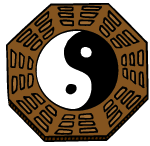While it is always best to speak to a practitioner directly regarding diagnosis and treatment, in this section I’ll cover some of the more general questions that clients have regarding Traditional Chinese Medicine.
1. What is Traditional Chinese medicine?
3. How many treatments will I need?
4. What will I expect during a treatment?
5. What are the areas of effectiveness?
What is Traditional Chinese medicine?
Chinese medicine is a complete healthcare tradition that dates back 3,000 years yet remains effective today. It is a means of strengthening the body, which can be weakened by modern-day stress and environmental hazards. Rather than treating symptoms as Western medicine does, Chinese medicine focuses on strengthening your own vital energy (Chi) so that your body can heal itself.
Although Traditional Chinese medicine uses many approaches, including diet, exercise and massage, its cornerstones are acupuncture and herbal medicine. Herbs provide the internal treatment for strengthening the body, while acupuncture is Chinese medicine’s most frequently used external treatment. Two associated treatments are moxibustion and cupping, both used to improve circulation.
How does acupuncture work?
According to the classical doctrine of Chinese medicine, there is an unceasing flow of “life energy” (Chi) throughout the body. This vital energy originates from the major organs, and flows along the continuous circulatory channels called meridians. When the energy flow is smooth and in balance, a person is healthy. If the balance is disturbed, that person may feel ill or pain. There are some specific points along the meridians called acupuncture points where the energy flow can be stimulated and the function of related organs can be regulated.
While Chinese concepts of the physical body may, at first, be difficult for a Westerner to accept, Western researchers have verified specific physiological changes during and following acupuncture. These include a strengthening of the immune system and release of pain-killing endorphins, and better functioning of the hormonal system.
How many treatments will I need?
Each patient is unique. The number and frequency of treatments will vary from patient to patient. Some symptoms are relieved after the first treatment, while others may take four to ten treatments.
While a specific problem is being worked on, you may visit your acupuncturist once or twice a month. To simply maintain good health, you may limit your treatments to once every season – four times a year.
What will I expect during a treatment?
Before each treatment, Dr. Kennedy will evaluate your health by asking you questions about how you feel. She may ask to feel your pulse, not just to check its speed, but to judge its condition. She may also examine your tongue, which by its color and texture can reveal much about your health.
After this exam, you will begin your treatment. The needles are as thin as human hair and are tapped in through a tiny tube. The needles are left in for 25 to 30 minutes while you relax under a heat lamp as soft music plays.
Most patients go into a state of deep relaxation and some even fall asleep due to the endorphins which are released during the treatment. In areas where the muscles are especially tight, electrodes may be attached to the needles. The electrical current provides a steady vibration to the tight muscles which feels like a gentle massage and relieves pain.
What are the areas of effectiveness?
Traditional Chinese and Western medicine each have their strengths, which is why, even in China, both systems are used by medical practitioners. Traditional Chinese medicine is most effective for chronic conditions and routine health problems – especially those that don’t seem to respond to Western remedies. Here are some conditions effectively treated with acupuncture:
- Stress Reduction: an effective way to alleviate anxiety, nervous tension, insomnia, hypertension, stiff neck and shoulders.
- Allergies and Headaches: alleviates allergies, tension headaches, sinus headaches, migraines, dizziness and digestive disorders.
- Women’s Health Issues: effective in treating PMS, fertility challenges, pregnancy issues, irregular periods, cramps, hot flashes, and hormonal imbalances.
- Immune System Enhancement: can help increase the body’s resistance, strengthen the immune system, and promote good health and a sense of well-being.
- Acupuncture Relieves Pain With Lasting Results: including neck and lower back pain, sciatica, bursitis, tendonitis, and arthritis.

